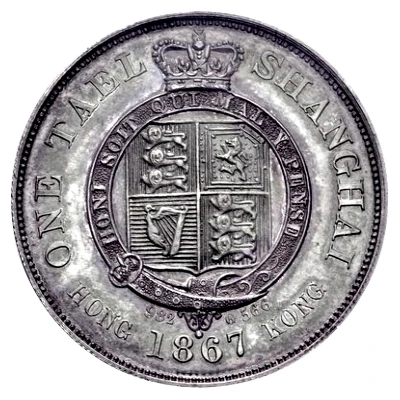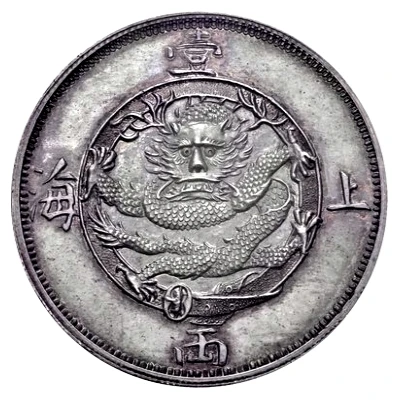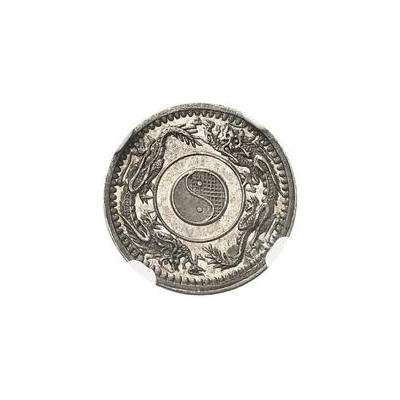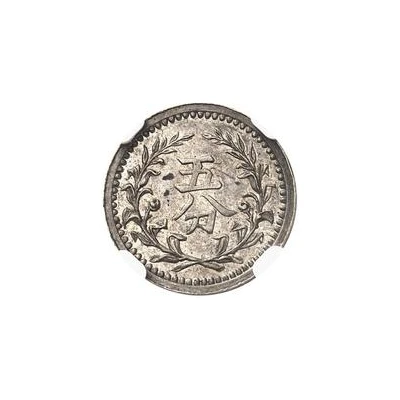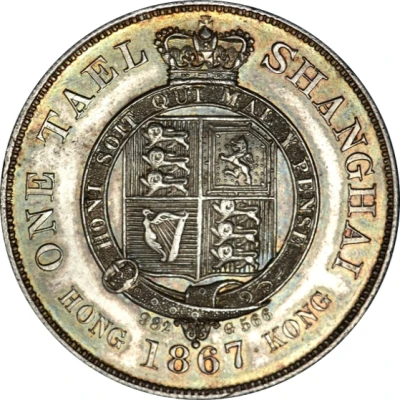
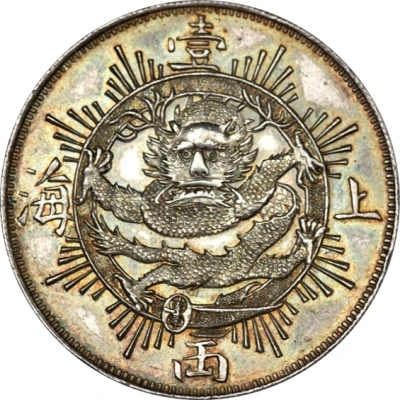

© Heritage Auctions
1 Tael Pattern; Hong Kong Mint; with rays
1867 year| Silver (.982) | 36.68 g | 39 mm |
| Issuer | Empire of China |
|---|---|
| Emperor | Qing dynasty › Tongzhi (同治帝) (1861-1875) |
| Type | Pattern |
| Year | 1867 |
| Value | 1 Tael |
| Currency | Shanghai Tael (1867) |
| Composition | Silver (.982) |
| Weight | 36.68 g |
| Diameter | 39 mm |
| Thickness | 3 mm |
| Shape | Round |
| Technique | Milled |
| Orientation | Medal alignment ↑↑ |
| Demonetized | Yes |
| Updated | 2024-10-04 |
| Numista | N#243333 |
|---|---|
| Rarity index | 93% |
Reverse
Dragon within circle surrounded by rays and four Chinese ideograms read top to bottom, right to left.
Script: Chinese (traditional, regular script)
Lettering:
壹
海 上
両
Translation:
Yi Liang Shang Hai
1 Tael / Shanghai
Edge
Reeded.
Comment
Only 2 to 3 examples are known of each type.This was an attempt at a unified coinage throughout China, proposed by the Central Government in Peking. At the time, Shanghai did not have a mint, and Hong Kong recently opened their own, so that mint was commissioned to strike these piece. However, with too many British overtones (and with the British being unpopular due to the Opium Wars), this design was rejected, and most patterns were melted.
Krause lists this under Hong Kong; however, Hong Kong was just the mint.
Interesting fact
One interesting fact about the Pattern 1 Tael coin from the Empire of China is that it was designed with a unique feature - a ring of rays surrounding the central image of the dragon. This design element was intended to symbolize the coin's connection to the sun and the life-giving energy it represents. The rays were also seen as a symbol of good fortune and prosperity, which was a common theme in Chinese currency design during that time period.
